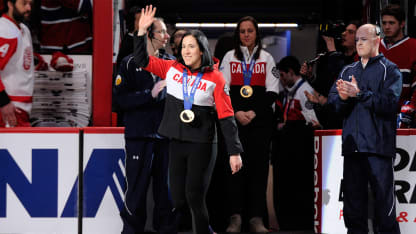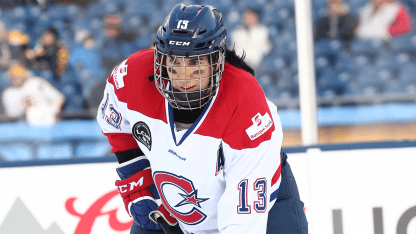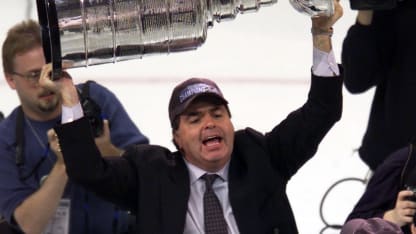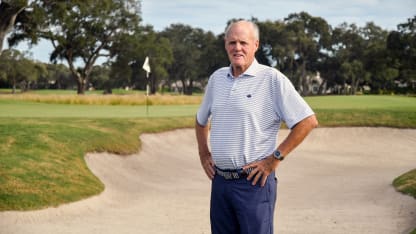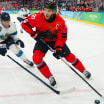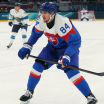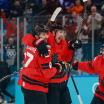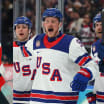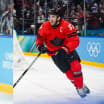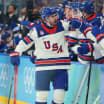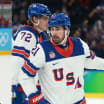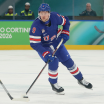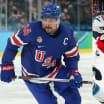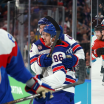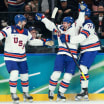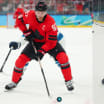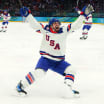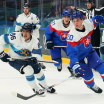The 2023 Hockey Hall of Fame induction is Nov. 13. This class includes Henrik Lundqvist, Tom Barrasso, Pierre Turgeon, Mike Vernon, Caroline Ouellette, Ken Hitchcock and Pierre Lacroix. Here NHL.com staff writer Tom Gulitti profiles Ouellette.
Caroline Ouellette looks at her path to becoming the 10th female player inducted into the Hockey Hall of Fame on Nov. 13 and considers herself fortunate.
"It's crazy to think about how late I started to play and the journey I was able to have and to be able to get this honor is hard to put words to," Ouellette said. "I feel very lucky and blessed. I get to see how proud and happy it makes my parents and just that in itself is also very, very special."
Ouellette grew up in Montreal dreaming of playing in the NHL for the Canadiens but didn't start playing hockey until she was 9 years old because her parents were initially concerned that she would be injured. They eventually gave in and became her biggest supporters with her mother, Nicole, buying her first pair of hockey skates and her father, Andre, signing her up for a boys' team and becoming her first coach.
After playing with boys until she was 16, Ouellette developed into a power forward whose combination of size (5-foot-11, 172 pounds) and skill made her force on Canada's national women's hockey team. She won four Olympic gold medals (2002, 2006, 2010, 2014), and six gold medals (1999, 2000, 2001, 2004, 2007, 2012) and six silvers (2005, 2008, 2009, 2011, 2013, 2015) at the IIHF Women's World Championship.
In Ouellette's four Olympics, she had 26 points (nine goals, 17 assists) in 20 games. In 12 world championship appearances, she had 68 points (23 goals, 45 assists) in 59 games. She retired in 2018 with 242 points (87 goals, 155 assists) in 220 games with the national women's team, third in its history.
"She was dominant," said Danielle Goyette, a teammate on Canada's 2002 and 2006 Olympic gold medal teams. "She was a good skater for her size. She was dominating with her size. She was physical. You could use her anywhere, first line to fourth line, and it would not affect her at all. She was always doing what needed to be done."
Ouellette's championship resume also includes winning the Clarkson Cup four times with the Montreal Stars/Canadiennes (2009, 2011, 2012, 2017) of the Canadian Women's Hockey League and an NCAA Division I title at the University of Minnesota-Duluth in 2003. She played 179 games in nine seasons in the CWHL (2008-2018), holds the league records for points (314) and assists (183) and is tied with Jayna Hefford for second in goals (131) behind former Montreal teammate Noemie Marin (132).
